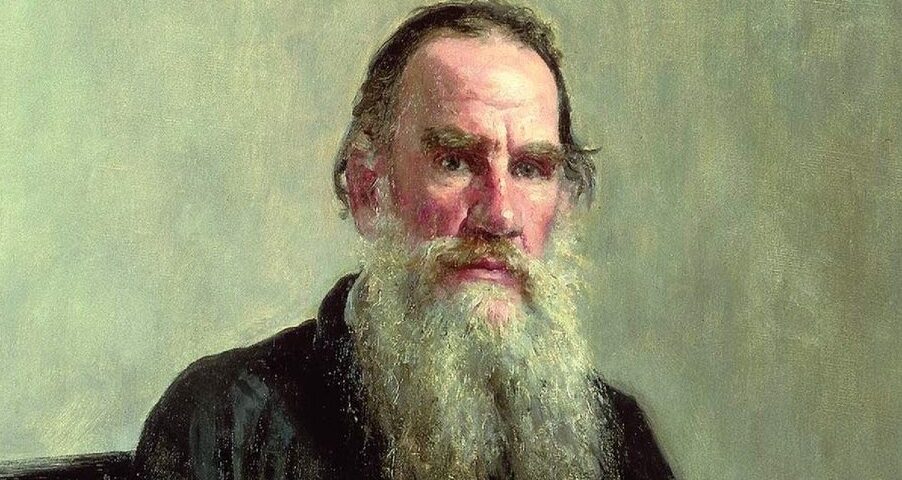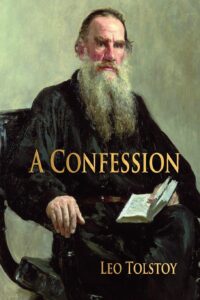The BEST: Tolstoy’s Confession

 Summary: With excruciating detail, Tolstoy’s A Confession depicts the agony of meaninglessness. Tolstoy’s pain was not the pain of having suffered abuse or tragedy. His life, as he writes, was blessed and fortunate. He had career success, financial comfort, family, and friends. He experienced the luxuries and pleasures the world had to offer. Yet, he was depressed to the point of nearly taking his life.
Summary: With excruciating detail, Tolstoy’s A Confession depicts the agony of meaninglessness. Tolstoy’s pain was not the pain of having suffered abuse or tragedy. His life, as he writes, was blessed and fortunate. He had career success, financial comfort, family, and friends. He experienced the luxuries and pleasures the world had to offer. Yet, he was depressed to the point of nearly taking his life.
Tolstoy describes his fame and success, “This faith in the meaning of poetry and in the development of life was a religion, and I was one of its priests.” Disenchantment from this “religion” led to the realization that its “highs,” its “priests,” and its societal “progress” and “dogmas” were filled with nothing but the search for pride and praise.
Eventually, his critical eye and reflective mind returned to ask, “Why am I doing what I’m doing? What is this for?” He found himself empty and unrooted. Alive but without life. In his misery, from within his hurt, he discovered light in the most unexpected places. He found his answer in the masses of “unlearned, poor people.” People who simply believed in God. People who were not necessarily part of the central religious institutions but just lived with faith.
Tolstoy’s upper-class education taught him and his peers to use a rational scientific apparatus. But science and philosophy were the wrong tools for discovering meaning. The unlearned people succeeded through faith. This simple faith in an infinite Being was all Tolstoy needed for his finite life to be fundamentally altered.
Why this is The BEST: Tolstoy’s challenge has gone viral. Material prosperity and save-the-world politics has made “social progress” priests of every college graduate and pop star. Tolstoy’s work is the best because it exposes the underbelly of high-class culture: status, self-righteousness, and dogmatism.
But A Confession is the best because of more than that. Tolstoy did something most of us are too afraid to do: He ripped off all the Band-Aids of life. He put away his fame, material success, professional success, social popularity, institutionalized religion, intellectual prowess, and even familial relationships. And he let himself discover the unadulterated rawness of experience. And in doing so he found that the only viable response to the problem of finite being is in the Infinite Being.
Modern addiction crises result from existential and spiritual emptiness. The alcoholic does not enjoy alcohol more than the non-alcoholic; he tolerates sobriety less. The highs that come with each hit serve as a stand-in for the High that is truly lacking. It is this High that Tolstoy presents in A Confession.
To many, the skeptic is intellectually honest, while the believer is an unenlightened follower. Tolstoy demonstrates no shame, immaturity, or shallowness in choosing to believe in the purpose and meaning of a world created by God. Belief is courageous, noble, and ever-important.
Yakov Danishefsky is a clinical social worker in private practice as well as a speaker and teacher of Judaism, spirituality, and psychology.
Click here to read about “The BEST” and to see the index of all columns in this series.
